If someone mentions the best manga of all time, there is no doubt that Bleach would be in the conversation. Being in the Big 3 alongside Naruto and One Piece, Bleach has stood the test of time with its action-packed story, fantastic characters, and devoted fan base. But all this praise is for the manga alone. The anime, on the other hand, is a whole different story.
Don’t get me wrong. I like Bleach and applaud what Kubo-sensei has done with it. Everything except for the ending, that is. However, the anime has given rise to some questionable things as to how it was handled. Simply put, Bleach, the anime, was on the air for far too long. They had a plethora of filler episodes, the story’s pacing was bad, they missed an opportunity to end it sooner, and it got canceled for some reason.
All of these reasons made the anime slow down to a crawl and plain boring at times. I know that there must be reasonable explanations for these occurences, but that doesn’t change the fact that the anime had overstayed its welcome on televisions everywhere.
Too Many Filler Episodes

For those who don’t know what a filler episode is, it’s an episode or a couple of episodes that fill space in the series. Hence the name. It usually has an entirely unrelated story from the main plot and lasts a few episodes. On occasion, filler episodes can be a nice distraction from the main story.
Filler episodes are utilized for various reasons, including waiting for the source manga to generate more chapters or to give a small break from the main storyline. So, for those people who only watch anime, filler episodes aren’t that big a deal. It’s a common enough occurrence that happens from time to time and is always skippable if you’re not interested.
Be that as it may, the filler episodes used in Bleach is just too much. Out of the 366 episodes that Bleach released until 2012, 163 were confirmed as filler episodes. Those episodes are approximately 45 percent of the whole anime. They even made five seasons that only had filler episodes. Although Bleach is not at the top of the list of animes with high filler episodes to plot content ratio, I think that they has plenty of opportunity to push out worthwhile content instead of making people wait for the story to progress. Like, perhaps, slow the pacing down during important plot points.
Poor Pace Management
The pacing of manga can sometimes make or break it. If it’s too slow, simply reading becomes arduous and readers drop the manga for something more enthralling. On the other hand, if it’s too fast, the story would seem rushed and leave the reader feeling whiplashed. This also holds true for an anime that shows once a week.
Bleach started slow, which is acceptable because the characters were all still being introduced in the story. After the initial introductions, the story picked up some speed when the first arc started. Then, the story maintained its pace until the very end of the said arc. After that, it became a bit chaotic.
Strike One
The studio decided to give its viewers two filler arcs to let Kubo-sensei publish more chapters in the source manga. Yes, you read that right—two filler arcs with a total of forty-six episodes spanning a whole year. But, it was to let the manga create more content for the studio, so people let it slide.
Strike Two
When the main story continues, the pace picks up speed once more, and everything is good again. That is, until it isn’t. This next arc, called the Arrancar arc, follows our main protagonist Ichigo and his journey to defeat Aizen, the current villain in the story. He encounters new bad guys, good guys, and also develops new powers.
By reading the summary above, you would think they would finish the arc in a hundred episodes. Unfortunately, that was not the case. The whole Arrancar arc from start to finish is almost 200 episodes, give or take. During the middle parts of the story, they again had to insert another two filler sub-arcs, a total of 56 episodes, to let Kubo-sensei publish more material for the anime.
As a result, the story’s pacing was cut short, in the middle of all places, leaving viewers hanging and waiting for another year or so to continue the story.
Strike Three
This last lapse in their pacing is somewhat a result of the other two. The last arc of the anime was the Fullbring arc. The story starts seventeen months later with Ichigo having to cope with the loss of his powers after defeating Aizen. He then discovers a group that could help him get his Shinigami powers back. Without spoiling too much, he ends up getting his powers back and more and defeats the villain.
Then the anime ends there. Because of the poor pacing of the studio, they had to finish the anime with what some would consider to be an anti-climacitc wrap up and left a lot of questions unanswered.
It Got Canceled, Once
Because of the studio and Kubo-sensei’s terrible decision-making, the anime got canceled before it was truly finished. They were dropping episodes at an incredibly fast pace before the source material had enough content which only caused further delay in the production. Additionally, rumors had spread that they had to stop the anime abruptly because of the budget.
Perhaps they wasted money on those filler episodes. At this point, it’s anyones guess if that is fact or not. Furthermore, the last arc they showed, the Fullbring arc, wasn’t a fan favorite, to say the least. It caused a drop in their sales which meant less money coming in. With all those factors adding up, it’s no wonder that the anime got canceled without proper explanation.
Missed Opportunity

In my opinion, they should’ve ended the anime with the end of the Arrancar arc. It gave us a gradual, action packed arc (albeit elongated) that climaxed with the final fight against Aizen. It was the perfect chance to end the anime because it had the characteristics of a good ending – unlocking new powers, a period of training after getting defeated, an epic boss battle, and a melancholic farewell to the characters.
Given that the manga hasn’t ended yet, they could’ve done something like Bleach: Shippuden and continued the story after a time skip. It would’ve also given Kubo-sensei some time to write more of the story so that the studio wouldn’t be forced to make filler arcs. But, unfortunately, they didn’t do any of these and just let this window slip away.
The Last Arc
And now, after Kubo’s announcement during the manga’s 20th anniversary in 2020, we will be getting the final arc in anime form. The Thousand-Year Blood War arc could be the longest yet in the history of the Bleach anime. The story revolves around the battle between the Shinigamis and the Quincy, a race of supernatural humans supposedly erased by the Shinigami two centuries prior.
With the manga ending in 2016, we could only hope that the studio avoids making the same mistakes as before and give us the full, momentous climax that Bleach fans deserve. With it’s release in winter of 2021, all we can do is watch and see for ourselves.
Takeaway
Bleach has a good story. It wouldn’t be in the Big 3 if it didn’t. But, adapting the manga to the tv screen may not be the best idea. I’d like to believe that Kubo-sensei wrote Bleach as a story that’s better read in bulk, meaning it’s preferable to take in the narrative in big chunks as not to dissipate the reader’s excitement and enjoyment.
Translating that to an anime format with an incomplete series would prove difficult, and it showed. So hopefully, with the release of its last arc, we’ll get the satisfying conclusion we’ve been waiting for and put an end to an anime that stayed for way too long.
See also: Top 5 Animes That Will Always Be Binge Worthy
See also: According to Fans, These 5 Anime have the Most Annoying Fanbases

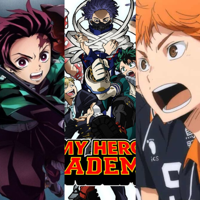
According to Fans, These 5 Anime have the Most Annoying FanbasesOct 23, 22 1pm
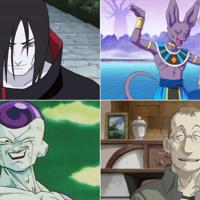
10 Anime Characters Who Deserve DefeatAug 22, 22 12pm

5 of the Best (or the Worst) Anime Characters with Split PersonalitiesOct 19, 22 1pm
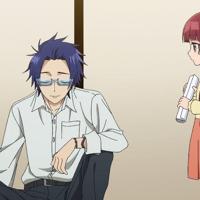
English Dub for The Yakuza’s Guide to BabysittingNov 23, 22 5pm

More Than a Married Couple, But Not Lovers Anime Adaptation will Premiere in October This YearSep 20, 22 12pm

Five New Anime Coming out in JulyJun 29, 22 2pm

Anime Adaptation for Murai in Love has been AnnouncedJul 9, 22 5pm
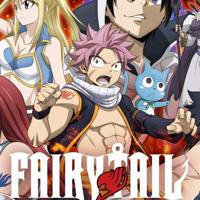
Twitter Exploded in Celebration for the 16th Anniversary of Fairy TailSep 6, 22 1pm

Ni No Kuni, The Anime, The Game and How They’re RelatedJul 25, 22 9am
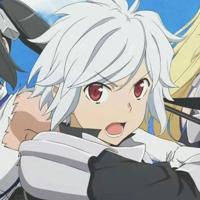
Is It Wrong to Pick up Girls in a Dungeon? Probably not, if there’s soon to be 4 seasonsAug 3, 22 2pm

Two New Animated Specials for My Hero AcademiaAug 14, 22 9am

Anime fans can get your own free website on RavenMay 6, 24 7pm

Artificial Intelligence from OpenAI expands to TokyoAug 27, 24 9pm

Top staff suspended at Anime DetourApr 12, 24 2pm
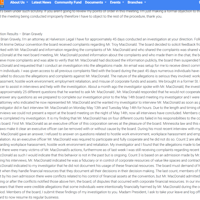
Anime Detour removes Troy McDonald and Kristen Loth from executive teamJun 10, 24 5pm

Anime-affiliated musicians of blank paper to perform at Anime MidwestMay 15, 25 1pm
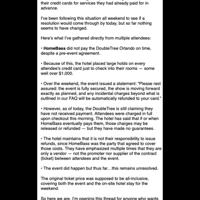
Music festival "Dirtybird" reportedly failed to pay hotel venue, reports The Festive OwlSep 3, 25 4am

Anime Milwaukee may have hired previously-fired Anime Detour executivesJan 31, 25 10pm

Yor's Appeal in 'SPY×FAMILY' is Her InnocenceNov 12, 23 2pm



